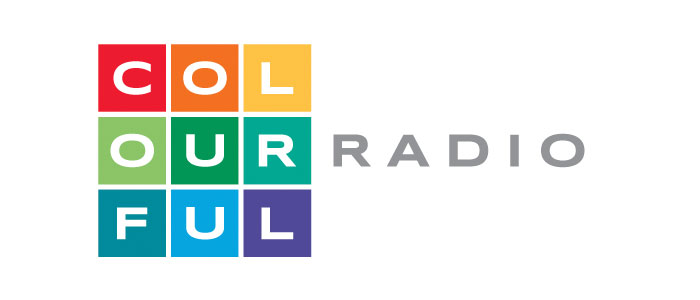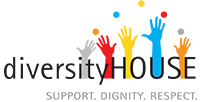Colourful Radio Interview with Christine Locke
The CEO of diversity House Christine Locke was interviewed by the Breakfast Show hosts of Colourful Radio raising the awareness of end of life and palliative care within Black and Ethnic minority communities. You can listen to the audio or have a read through the transcripts.

Radio Show Transcript
Desiree (Colourful Radio): End of life care is support for people who are in the last months or years of their life and it also includes palliative care which is a specialized medical care for people with serious illnesses. There is concern among health care professionals who have highlighted the very low numbers of ethnic communities; African, Caribbean and Asian people accessing end of life and palliative care services and I did say we would have a speaker this morning from Diversity House which is a charitable organisation providing both community and prison based services for diverse communities with the aim to promote community integration re-integration and social inclusion and cohesion.
Diversity House will be hosting an event this Friday the 1st of February regarding raising awareness around end of life and palliative care among ethnic minorities. They want to understand why there are such low numbers of people accessing the support and information.
Christine Locke is the CEO of Diversity House and over the past ten years she has successfully led the charity developing and implementing varieties of projects such as community rehabilitation programs for offenders, promoting the involvement and participation of disadvantaged women and girls in Kent among other things.
Desiree (Colourful Radio): Christine good morning. We wanted to find out from you what message it is that you have for us this morning?
Christine Locke (Diversity House): Yes, like you rightly said there are black and ethnic minority communities are not using community services especially health and social care and we are worried that that this health inequality is prevalent among those communities.
But then it comes also to palliative care and end of life and it seems that these communities are unaware or there is a problem of cultural and social norms that are making them not to Actually explore and use those services so all.so over the 8 or more years we have been working with other partners organizations such as the University of Greenwich, Eleanor Hospice and many others trying to raise awareness in these communities in terms of palliative care and end of life.
So, what we want to do; the aim is this is to create awareness for these communities to use these services when it is needed for them.
To improve their understanding of how to engage and participate and have conversation with regards to this subject.
Desiree (Colourful Radio): Now yesterday when we spoke you said that you were trying to demystify the concept of palliative care. What do you think people think about it from our communities?
Christine Locke (Diversity House): Both traditionally and in terms of religion our culture makes it a taboo or is kind of sacrilege to talk about death and anything surrounding it. So, the fear of death, the fear that if you mention it then it’s going to happen which, in reality, is not so. If you have life, then you will die. It may not be now, but it will happen, so why not try to understand and you’re your house in order before it happens if you have a long-term illness there are services to help improve your quality of life. Palliative care like you rightly said does not mean that person is dying; it may mean that somebody has a chronic illness and what they need is support.
Desiree (Colourful Radio): There’s the notion that when you hear about it within our communities the fact that everybody’s thinking well we’ve got families so the expectation is that we will take care of one another on our own it’s not something that we actually think about you know this these services that we can access what is the impact of not actually discussing getting all the information that’s necessary?
Christine Locke (Diversity House): We are now actually in a culture that we don’t have that extended family. Most of us have families scattered all over the world.
It’s important that you understand the help that is out there for you. You may have children and you are banking on your children that’s when it comes [time] they’ll be around. But what if your children are in Australia and are not there at hand to support you. Does it not make sense that if you pay tax, you’ve been working here for years that there is support that you need at that crucial time in your life and you are able to access, and it make sense that you need to do that.
It’s important to highlight that our Christian religion some of our you know religion tells you that when somebody talks about it, they will say, ‘Oh return to sender’ or ‘God forbid’ or something like that as if you are pronouncing that they going to die. All you are doing is to help them. It’s just like taking insurance, why do people take health insurance, life insurance, people take insurance for their cars. If you can take insurance for your car, why can’t you take insurance for your life?
Timeyin (Colourful Radio): It’s very difficult within the church, [God bless them, they have done a lot for the community] there is a taboo when it comes to talking about death even though it is the surest statistic. I wanted to ask if you feel like they are doing it on purpose, is the church mis-informed or does the bible actually preach that we shouldn’t talk about death?
I don’t think that they are doing it deliberately or out of spite. The church needs to work hand in hand with public health, health promotion people and clinicians. We don’t know everything. We need knowledge. Leaders in African churches need to get some information and support. It’s out there for public health and that’s why Public Health of England is working with us on this subject. Health promotion practitioners and public health specialists need to go out there for community development and need to communicate with our black churches and all the ethnic minority groups, whether they are in mosques, temples or wherever they are. They need to reach out and stop using terms like ‘difficult to reach communities’, none of these communities are difficult to reach but you need to work in a flexible way to find where they are and give them this pertinent information you know and create an awareness. Let me now quote the bible, it says ‘My people die for lack of knowledge.’
Nigel (Colourful Radio): Christine I was looking over a Marie Curie report and it was saying at the moment there is around half a million people from ethnic minorities accessing palliative care, but it was saying that by 2026 there’s expected to be a doubling over or a million or so from ethnic minorities accessing or needing this. Your organisation is doing a wonderful thing speaking to us today but what else could we be doing and how can we get in contact because we don’t want to wait until 2026 and suddenly cast our mind back to this conversation?
Christine Locke (Diversity House): To hear about what we do and to get in touch in fact I need you people, I need your radio’s support, I need everybody to be on hand. You can come to Swale in Kent, come to Sittingbourne and see us there. We are one of a kind, we didn’t pigeon hole ourselves to just talk about old people, or people with disabilities or women. Whatever social inequality, whoever you are, whatever background you come from we are using intersectional family’s framework to look at every aspect of human beings’ life, mental health, youth or whatever it is that makes them disadvantaged, we will work with them.
Timeyin (Colourful Radio): Christine I just wanted to mention that we love your passion as well, what you are doing is amazing work and I really hear your passion about it and we are so grateful for the work you are doing and I wanted to ask, where does this passion come from, how did you get started in it. What is your inspiration behind this because it is very important work, this is the first time I’m hearing this, why is it not talked about and what pushed your forward into this journey?
Christine (Diversity House): My passion comes from way back in Nigeria where I come from. In Nigeria we understand community development, we do not wait for people to do things for us. We work as communities, put our resources together to develop our villages, our clans, our tribes and I learnt that when you join hands with people, social change could happen.
When I came to the UK, 20 years ago, I came to Swale which was at that time mainly a white community and I was the only black face you could see from Monday to Monday. Being that I married a white British man, I stood out like a sore thumb with everybody looking at me in a funny way.
I didn’t know where to go, there was no support, I think actually I was just floating, so I decided [because of all the things that I saw happen at that time] I was not going to let people feel excluded because nothing upsets people’s mental health than just being ignored, languishing without support or any kind of social network. I decided to bring these communities together, because to be honest you cant blame a white person that’s never seen a black human being before, they will be afraid of you, they don’t know who you are, so it’s left for us to reach out our hands and say ‘this is us, we don’t bite’, so that is why I started the charity. The world is a global village now, we’ve got to pull people together to live in harmony, it’s important to do so because then every community will bring their social capital and develop where they are living.
For more information please go to: www.colorfulradio.com

